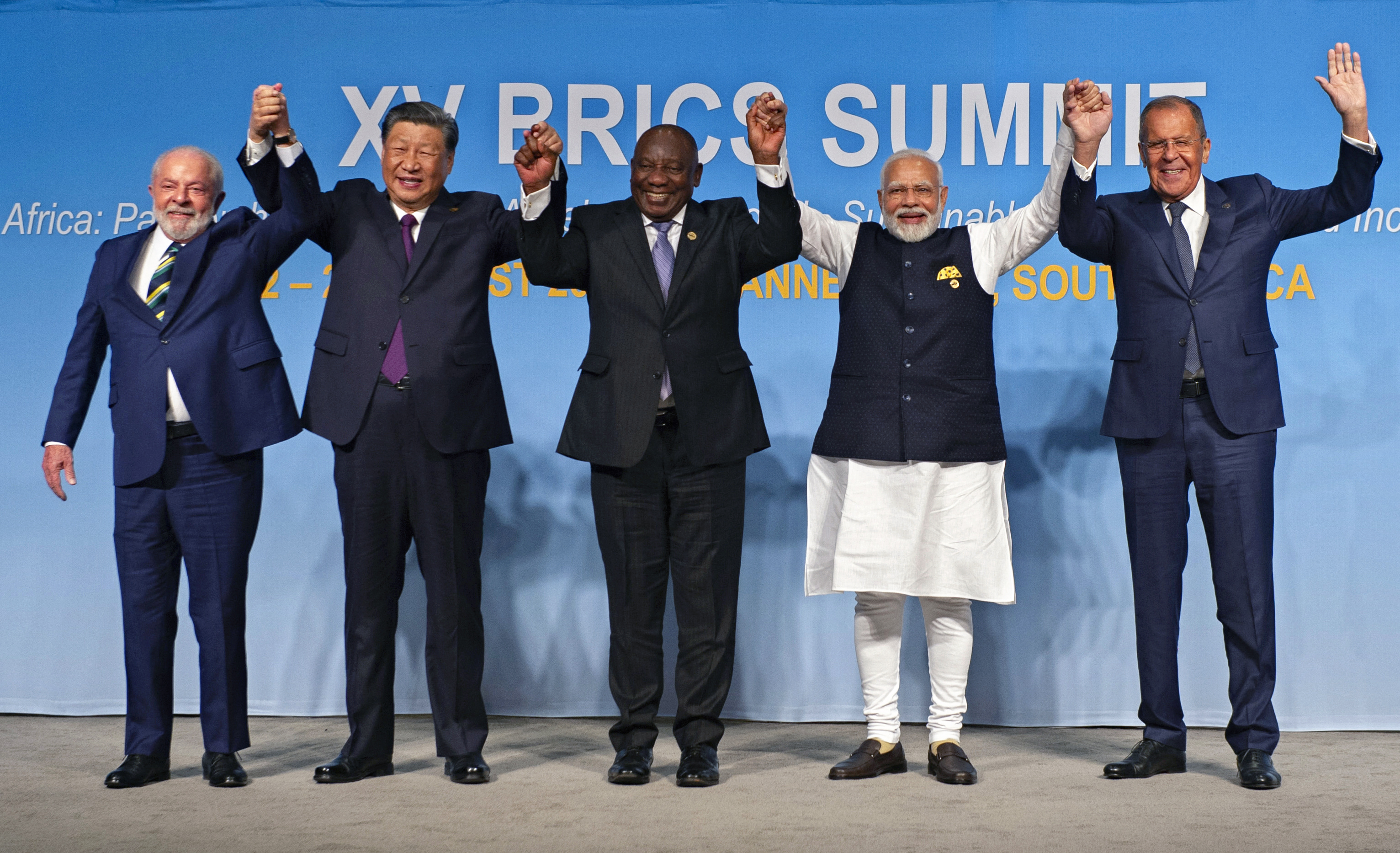
Although China and sometimes Russia have been much talked about as potential challengers or at least competitors of the US, the war in Ukraine has indirectly shown that there are many more countries whose voices will have to be heeded in the future. Now, it looks as if a significant number of these countries, most of the emerging powers of the so-called Global South, will be able to join the BRICS group, formally declaring that the world has changed.
The BRICS - originally BRIC - was formed in the second half of the 2000s as an institutionalised group of states with the aim of bringing together the emerging economies of the time. Brazil, Russia, India, China and the Republic of South Africa already had significant economic, political and cultural potential, but this has become even more apparent today. Since 2020, the BRICS' contribution to world economic growth has surpassed that of the G7 - who see/pretend to see themselves as the world's economic leaders - and the gap will only widen in their favour in the years to come.
No wonder that the group has attracted the interest of many countries in recent times, and many have openly declared their intention to join. In the run-up to this year's 15th BRICS summit, a total of 23 countries have formally expressed their interest in joining the group, but South African foreign ministry officials say that there have also been a number of informal enquiries. The Summit finally decided to admit six countries to the group, bringing Argentina, the United Arab Emirates, Egypt, Ethiopia, Iran and Saudi Arabia to the BRICS from 1 January 2024.

What is more important than the fact of BRICS enlargement is what this process signals. The so-called Others, the states of the Global South, now consider it as important, if not more important, to coordinate with each other on regional and global issues as they do with the Western states. The BRICS could, therefore, become a global symbol of the changing world order, a platform that, by its very existence, signals that the period when the Western states could dictate to the rest of the world from a position of leadership is over and that the 'Others' must now be treated as equal partners.
This does not mean a break with the West, which is still a dominant economic power, and the G7 is one of the most important trading partners for most of the current and potential BRICS members.
One of the essential features of the current global processes is precisely that they cannot be interpreted as a simple bipolar confrontation along the lines of the Cold War (although bipolar and Cold War characteristics are clearly present in the current era). We must prepare for a multi-player geopolitical world where the global majors must take into account the interests and intentions of the regional majors. Otherwise, their efforts may fail.
The author is a Senior Researcher at the 21st Century Institute and external expert at the Eurasia Center